Feature
Blurring The Line Between Fiction And Reality In ‘Djinn Patrol’
Today, Delhi burns as religious riots wreak havoc on the nation’s peace.
Xenophobic violence, political power plays and hate perpetrators run amok while it is the common man who still has to work, worry about how to feed his family and survive amidst this violence. Deepa Anappara’s Djinn Patrol On The Purple Line highlights this ugly face of India – one where we still haven’t learnt to embrace the true meaning of secularism.
While the book revolves around the issue of kidnapped children and the indifference of the authorities, religious hate propaganda also plays a major part. In Djinn Patrol, the protagonist, Jai, is sad to see his friend, Faiz, and his family pack up their belongings and leave their home. He says they are moving to a predominantly Muslim-populated area nearby, dubbed ‘Chhota Pakistan’ by the locals. As an eight-year-old child, Jai is unaware of the gravity of his statement. ‘Chhota Pakistan’ might be mere words for Jai, but it holds the weight of decades of religious intolerance and prejudice that continues to cast a gloomy shadow over all of us.
We’ve been brought up to believe that children are only focussed on their games and food, unaware of the harsh realities of life. But that’s not entirely true, is it? Children have borne the brunt of religious intolerance for decades, carrying those scars well into their adulthood, just like the children in Djinn Patrol.
Fiction does not make India’s current predicament any less true. Instead, it highlights our current reality and reminds us how it might as well be 1984.
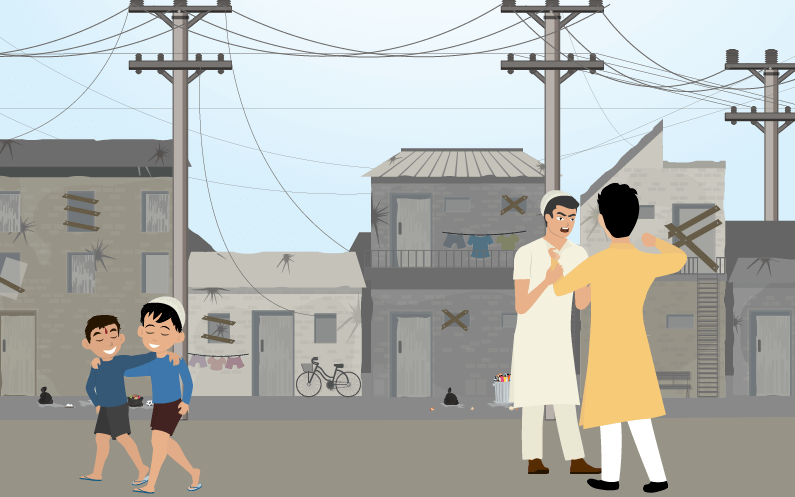
The Spark Of Communal Violence
Djinn Patrol begins with the disappearance of Bahadur, a boy from Jai’s class. Jai, along with his friends Pari and Faiz, begins investigating Bahadur’s disappearance. In the meanwhile, his classmates are more focussed in playing an ‘India versus Pakistan’ match as they root for the winners of a popular singing show. Gaurav, the tilak-wearing nine-year-old boy fearlessly proclaims that the Muslim contestant’s people kill both cows and Hindus. Hearing him, Jai believes that Faiz would never kill him, showing the innocence and purity of a boy who hasn’t been sullied by religious divisions. Even when the count of missing children goes up, he doesn’t link it to their religion. It is only after a baba and a local politician raise the issue of religion that it sparks hate speech, communal violence, and religious discrimination.
Sadly, this situation is not limited to fiction, but has been our reality for decades on end. The seeds of distrust between the Hindu and Muslim communities were first sown by the British, during the era of colonial rule. Since Independence, religious fundamentalists and political aspirants who seek to indulge in divisive politics have used the same tactic to repeatedly sow hatred between religions. The currently fraught situation in our national capital is, in fact, an example of what happens when ‘leaders’ in positions of power blatantly abuse the power of speech to drive a wedge between people on the basis of religion.
The result? Multiple people killed, beaten, abused or thrashed, while the world watches, and for what? But that’s the problem, isn’t it? Not many people stop to think and answer this question. For what? What will be gained by such violence, except the loss of life and destruction of public property and the peace, harmony and secularity on which lies the foundation of our country?
Who Pays The Price? The Common Man
Like 24% of the Indian population, the people in Djinn Patrol live in slums, and many of them work for the ‘hi-fi’ people in the nearby areas. They are people who live in poverty, who give hafta to the policemen so they don’t demolish their bastis, and still try to give their children the best future they can afford. When the children start disappearing one by one, their parents implore the police to investigate. The police refuse, citing various reasons such as the girl must have run off on her own (or with her older Muslim boyfriend). As the situation turns dire, the slum-dwellers take matters into their own hands, start vigils and try to find the missing children on their own. As the novel comes to its end, and the slum-dwellers catch the culprit, while the police are busy catching the commissioner’s cat, Jai thinks of how many lives could have been saved, if only the police in real life had been as efficient and honest as the ones on his beloved show, Police Patrol.
In 2020, as India is embroiled in CAA and NRC disputes, and political parties are generally reluctant to step out and support the people, it is the common man, whose life will undergo drastic changes, who has come out in protest. Our economy is in decline, rural poverty has shot up, the gap between the rich and poor keeps increasing. Even a basic necessity like the safety of women remains questionable. But is anyone fighting for it? With political parties busily blaming each other for their mistakes, very few appear willing to take up the torch of empowerment. Who suffers in all this? The common man.
With the children in Djinn Patrol losing their lives due to a lack of interest on the part of the police due to the economic status of the complainants, Anappara’s fiction holds up a rather stark mirror to the treatment meted out to the common man in India, who is forced to fight his own battles.
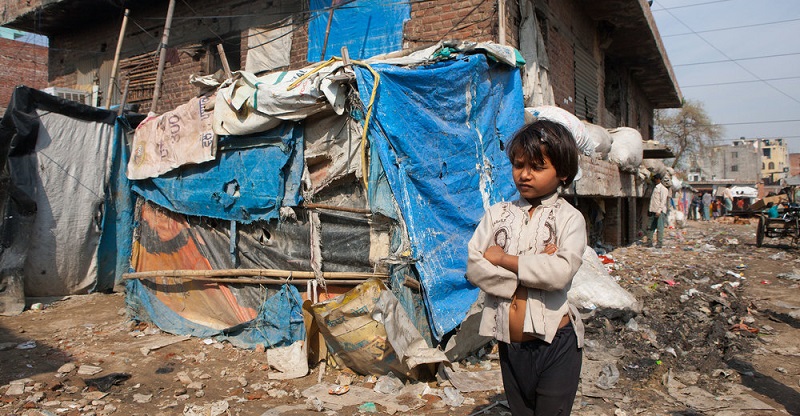
(Image via Salem ministries)
The Main Issues Get Side-lined
The baba in Djinn Patrol suggests that they hold a puja to appease the gods, after which the missing children will surely be found. Chandni’s (one of the missing children) mother goes to the police station to invite the police to the puja, in the hopes that it might provoke them to find her. Instead, they beat up Chandni’s mother. When she arrives for the puja in her injured state, she is given no sympathy from the Hindu organisation conducting the event. They shout at her to not cause a scene because they don’t want her to spoil their efforts.
Later, the Hindu Samaj Party states that since the missing children are only Hindu, it must be the Muslims who have kidnapped them. The situation deteriorates further when people end up killing a Muslim’s buffalo, and a young Muslim is wrongly arrested by the police for the kidnappings. Instead of concentrating on finding the missing children, the local Hindu groups are happy to instigate religious violence, and the main issue gets side-tracked.
Since December, people in India have been participating in peaceful marches (apart from those who have resorted to stone pelting) because they want to have their problems heard and solved. Instead of concentrating on The Personal Data Protection Bill, which is said to have the potential to ‘turn India into an Orwellian state’, or the Trans Bill, which violates the fundamental rights of citizens, we are choosing to focus only on religious issues today. This misplaced focus has led to a number of problematic bills getting passed, thereby pushing the common man’s problems down to the bottom of the barrel to get lost and forgotten. This is also the case in the book, where the authorities choose to play a blame-game based on religion rather than focussing on the actual investigation into the case of the vanishing children.
We are so busy fighting each other that we have forgotten to fight for the nation. Violence is never the answer, but as long as the violent people have the loudest voice, the real issues of India will never get solved.

(Image via PRI)
As a journalist, Anappara has had a first-hand view of the plight of the people who live in poverty whose problems are at the bottom of anyone’s list of concerns. She’s reported hundreds of children lost, never to be found, their names a mere blot on official papers that make the rounds of government offices.
When Anappara set out to tell the story of missing children, she might not have predicted how closely the Hindu-Muslim differences in her book would hit home. But that doesn’t change the fact that Djinn Patrol does, in fact, talk about the issues of religious intolerance that are so deeply ingrained in our conversations and actions that we don’t even stop to think about its repercussions anymore.
This book is a sad refection of the times we live in, of the mindset of a handful who would rather indulge in nonsensical hate than direct their and the nation’s energy in doing something substantial and effective.
As long as the grown-ups refuse to come to their senses, perhaps children like Jai will need to be detectives to save people.

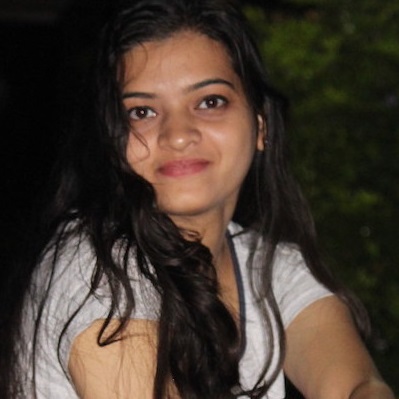
Prasanna Sawant
Prasanna is a human (probably) who makes stuff up for a living. When she's not sleeping or eating, you'll find her in the quietest corner of the library, devouring yet another hardbound book. She vastly prefers the imaginary world to the real one, but grudgingly emerges from her writing cave on occasion. If you do see her, it's best not to approach her before she's had her coffee.
She writes at The Curious Reader. You can read her articles here.

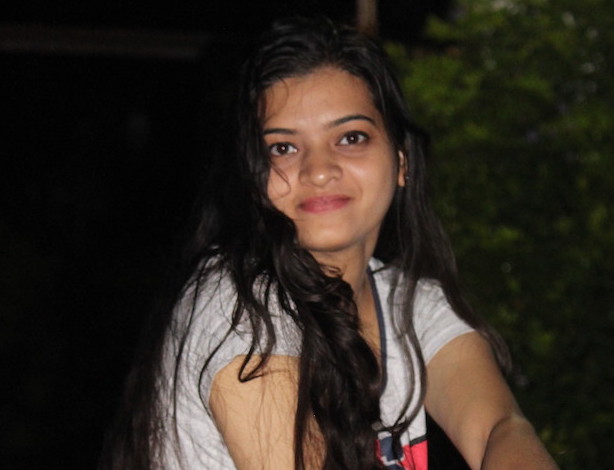

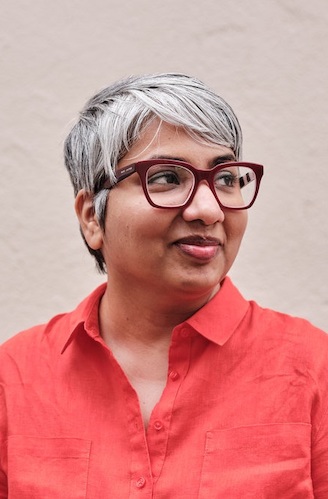


Check your inbox to confirm your subscription
We hate spam as much as you hate spoilers!